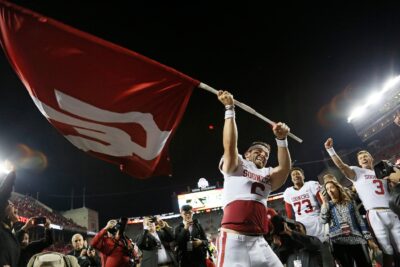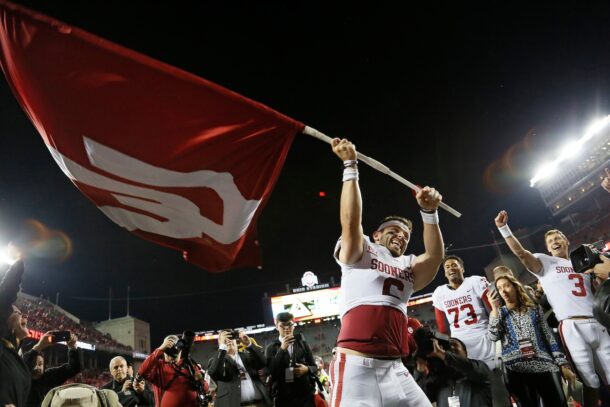
If Tennessee doesn’t hire Gruden, it should consider bringing back Kiffin
KNOXVILLE — It’s Alabama vs. Tennessee week, better known as the Third Saturday in October.
But Tennessee fans have expressed such displeasure throughout social media, radio airwaves and TV that the game appears meaningless. The way the past four games have unfolded for Team 121, it’s easy to understand why.
Alabama is seeking its 11th consecutive win over the Big Orange, all under Nick Saban since his 2007 arrival. A victory would tie the Crimson Tide’s longest winning streak in the history of the series (1971-81).
Before 2007, the Crimson Tide suffered a seven-game losing streak to Tennessee from 1995-2001 then also lost in 2003, 2004 and 2006.
Times were tough then for Alabama in trying to replace national championship head coach Gene Stallings. The program went through Mike DuBose, Dennis Franchione, Mike Price and Mike Shula until the Crimson Tide got it right with Saban.
In the past decade, as Alabama has owned the series, the Volunteers football program has experienced turnover that parallels what the Tide had gone through before Saban.
The Vols have endured Lane Kiffin, Derek Dooley and Butch Jones in search for their first national championship-winning head coach since Phillip Fulmer. Kiffin’s team put up the most contested game against Alabama during Saban’s tenure in Tuscaloosa, a 12-10 Crimson Tide victory in 2009 clinched when Terrence Cody blocked a 44-yard field goal as time expired.
Saban’s dominance over Tennessee in 10 years — and the fact that the Volunteers are on their third athletics director and fourth head coach during that span — means there is little for Vols fans to be excited about heading into the annual rivalry game.
Tennessee is 3-3 and coming off of a 15-9 loss to South Carolina, many Vols fans are soured on Jones, and some UT commits are re-opening their recruiting process. This all sets up the most likely scenario that Tennessee will be looking for another head coach soon.
Lane Kiffin’s one-year stay in 2009 was the shortest for a non-interim head coach at Tennessee since Jim McDonald’s 10-game reign in 1963.
Kiffin has coached on both sides of the Third Saturday in October; he was Saban’s offensive coordinator from 2014-16. Now Kiffin is a head coach again at Florida Atlantic.
With Tennessee’s struggles this decade, one might imagine what might have been if Kiffin had stayed at Tennessee and not bailed for his dream job at USC after only one season on Rocky Top. Where would Tennessee’s program be if Kiffin was entering his ninth Third Saturday in October showdown?
As first-year athletics director John Currie figures out the next chapter of Tennessee football, the money is there to pay for Jon Gruden or an A-list coach. The question is, can Currie get big money boosters to spend their money like Alabama did in 2007 in an attempt to turn the program around overnight?
Would Tennessee fans take @Lane_Kiffin back as head coach?
— Dan Harralson (@danharralson) October 15, 2017
If for whatever reason Tennessee does not land (i.e. pay for) an elite head coach, then the program should entertain the thought of bringing Kiffin back to Rocky Top. It would be far from the first time a head coach left a school then returned.
Randy Edsall coached UConn from 1999-2010 before leaving and taking the Maryland job. Edsall returned to UConn as head coach this season.
Johnny Majors returned to Pittsburgh to coach from 1993-96 after leaving in 1976 to coach his alma mater, Tennessee.
Bobby Petrino left Louisville in 2006 for the Atlanta Falcons and was hired back to coach the Cardinals in 2014 after he was fired from Arkansas and left Western Kentucky.
Mike Riley left Oregon State after the 1998 season to coach the San Diego Chargers and returned to become the Beavers’ head coach once again from 2003-14.
Both John Robinson (twice) and Bill Walsh won a share of a Pac-10 title when they returned in the early 1990s.
John Robinson did the same — he coached USC from 1976-82, left for the Los Angeles Rams then led the Trojans again from 1993-97.
Bill Walsh made his name by winning three Super Bowl championships with the San Francisco 49ers from 1979-88. But that tenure was sandwiched by his two stints as Stanford’s coach, from 1977-78 and 1992-94.
Even one of Tennessee’s opponents this season has a head coach that left and came back. Mark Whipple was the head coach at UMass from 1998-2003 and left to become an NFL assistant, but returned to be UMass’ head coach again in 2014.
A coach returning to a school is not common, but in different cases it makes sense if the program decides he’s the best option.
For Tennessee, Kiffin returning to lead the Vols would make sense if UT does not lure one of the elite head coaches available.
Dan Harralson covers Tennessee football for SaturdayDownSouth.com. Follow Dan on Twitter @danharralson.







